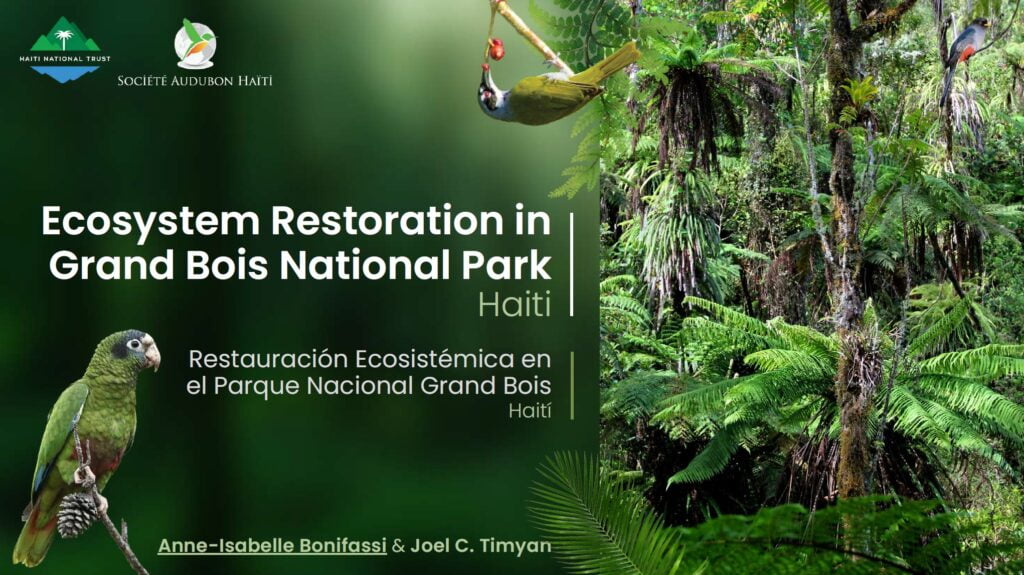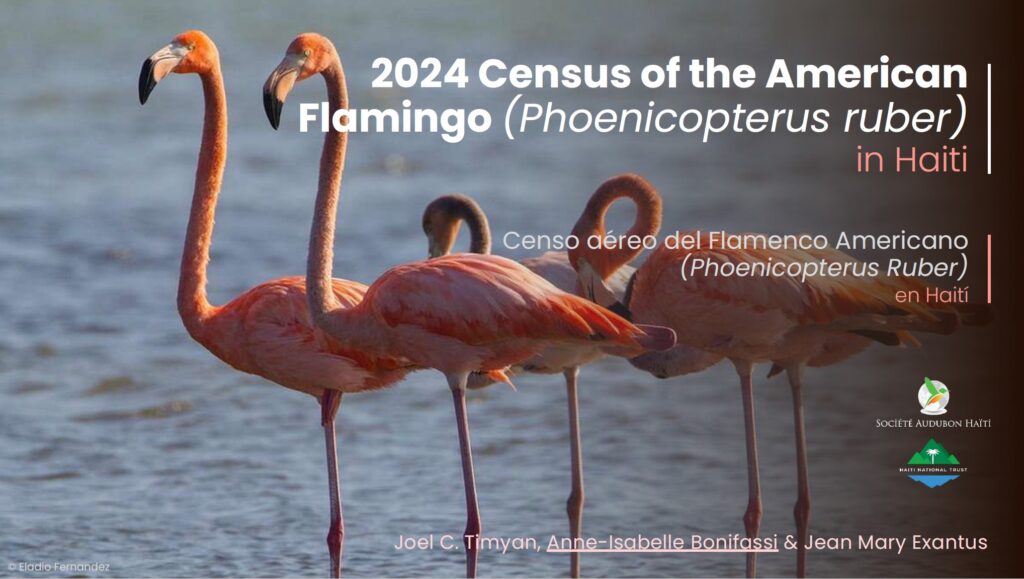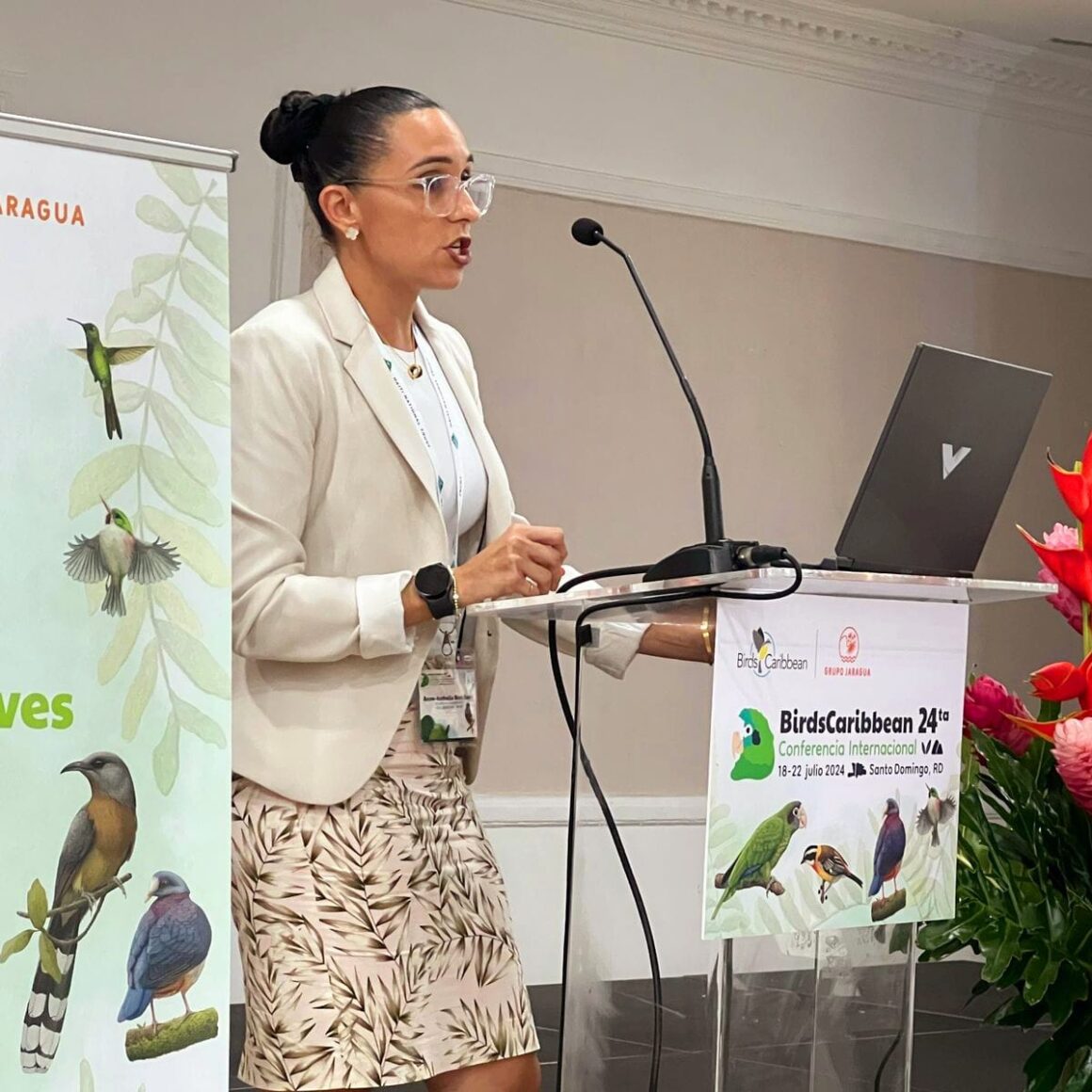Haiti National Trust made a significant impact at the 24th International Conference of BirdsCaribbean, held in the Dominican Republic from July 18th to 22nd, 2024. The conference, which brought together ornithologists, conservationists, and environmental enthusiasts from across the world, served as a platform for sharing research and strategies for conservation.
Our Executive Director delivered two highly anticipated oral presentations. The first, presented in plenary on Hispaniola Day, was titled “Ecosystem Restoration in Grand Bois National Park, Haiti.” This presentation highlighted the comprehensive restoration efforts undertaken in Grand Bois National Park, emphasizing the importance of restoring ecosystems to support biodiversity and maintain ecological balance. The abstract of this presentation is as follows:
Grand Bois National Park was created in 2015, encompassing 370 ha and recognized as the first private forest reserve in Haiti. During the past decade, a total of 48 bird species have been observed in the park, including 4 threatened species and the only species endemic entirely to Haiti – the Grey-crowned Palm Tanager (Phoenicophilus poliocephalus). In 2023, an environmental study of the park confirmed that the primary rainforest habitat is largely intact and that the major threats to the forest have significantly declined. Grand Bois provides critical habitat for the diversity of bird species, featuring large patches of the Sierra palm (Prestoea acuminata), a high diversity of endemic plant and animal species and an abundance of freshwater sources. We presented a current assessment of efforts to restore deforested areas of the park and to build local community support for the park.

The second presentation was part of a symposium “Mangroves and Beyond: from Data Collection to Community Action—the Power of People to Safeguard our Wetlands and Waterbirds” and was titled “2024 Census of the American Flamingo (Phoenicopterus ruber) in Haiti.” This talk presented the findings from the aerial census our team conducted in February 2024 and provides new insights into the populations and locations of the American Flamingo in Haiti, contributing valuable data to the regional understanding of these majestic birds. The abstract for this presentation reads:
An aerial census of the American Flamingo (Phoenicopterus ruber) was conducted during February 20–27, 2024, in Haiti. Nineteen wetland sites were surveyed by fixed-wing aircraft over 4 days. Flamingos were detected at 5 sites and totaled an estimated 1333 individuals. The highest number of individuals was observed at the Estère mangroves and wetlands (1000), followed by Lac Azuéi (229), Lagon Grand Vide (76), Ile-à-Vache (25) and Pointe Mangle (3). It was not possible to census all the areas in Haiti where flamingos are known or expected to occur. Coastal areas that were omitted from this census included the western Tiburon Peninsula, the Cayemites, the Northwest, the Southeast and Tortuga Island. The census is likely an underestimate of the actual population in Haiti during the period of the study. Historical and recent data were compiled to map the distribution of the species in Haiti. It is recommended that Haiti increase the area of protected wetlands to ensure adequate feeding and resting habitats, but also to expand their spatial and temporal coverage and ensure conditions for breeding residents.

Attendees were particularly impressed by the impactful results shared by Haiti National Trust, reflecting the organization’s dedication to advancing conservation science and practice in the Haiti and the region.
For those interested in exploring the presentations in detail, click on the titles below to view or download the full presentations:
– “Ecosystem Restoration in Grand Bois National Park, Haiti”
– “2024 Census of the American Flamingo (Phoenicopterus ruber) in Haiti”
Haiti National Trust continues to be a leading force in conservation, committed to protecting and restoring the natural heritage of Haiti.


